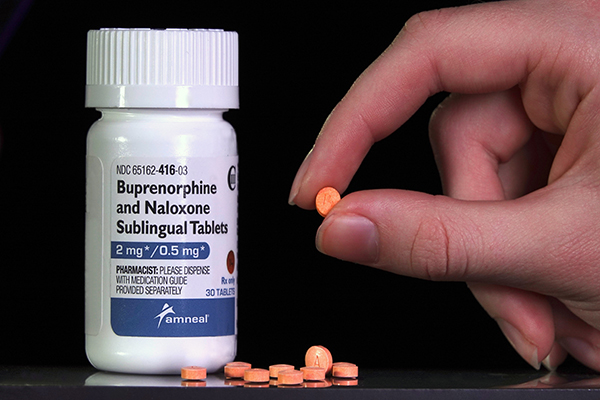Suboxone (Buprenorphine/Naloxone) is a medication that is used to treat opioid use disorder. Suboxone contains 2 different ingredients, buprenorphine, and naloxone. Buprenorphine (the active drug) is a partial opioid agonist that blocks the opioid receptors and reduces cravings, and naloxone (the inactive drug) is an opioid blocker or opioid antagonist. Suboxone is an opiate, so it prevents withdrawal symptoms from occurring in someone that has become dependent on opioids. What would happen if you use heroin while on Suboxone? What are the side effects, what are the dangers?
Firstly, How Does Suboxone Work?
Suboxone suppresses pain at low doses, but it starts to block the opioid receptors from getting any more stimulation at increased doses. Since the opioid receptors are blocked, an addict can no longer get high on any other opiates/opioids if taken while the individual is on suboxone; this is called a “ceiling effect.” Naloxone helps to reverse the effects of opioids. These medications work together and are very effective in treating opioid dependence.
What Happens If Someone Using Heroin With Suboxone?
As we have already discussed, suboxone has naloxone in it which is an opioid blocker. If someone were to use heroin or any other opioid on top of suboxone, they would not feel the drug or get the full effects of it. The naloxone would block the effects. And trying to use more of the opioid to bypass the naloxone is dangerous. Both suboxone and heroin are central nervous system depressants. Using them together could cause serious respiratory depression. The National Institute of Health The American Journal On Addictions “Drug Interactions of Clinical Importance among the Opioids, Methadone, and Buprenorphine, and other Frequently Prescribed Medications: A Review” reports:
Drug interactions are a leading cause of morbidity and mortality. Methadone and buprenorphine are frequently prescribed for the treatment of opioid addiction. Patients needing treatment with these medications often have co-occurring medical and mental illnesses that require medication treatment. The abuse of illicit substances is also common in opioid-addicted individuals. These clinical realities place patients being treated with methadone and buprenorphine at risk for potentially toxic drug interactions. A substantial literature has accumulated on drug interactions between either methadone or buprenorphine with other medications when ingested concomitantly by humans. Furthermore, there has been a dramatic increase in deaths related to methadone use, both for the treatment of pain and illicit use, in the United States in recent years. Drug interactions have been implicated in many of these deaths. (NIH)
Mixing any drugs is dangerous, especially when mixing with an illicit drug. The fentanyl that is going around today and mixed in with all of the street drugs is killing people daily.
Medication-Assisted Treatment With Suboxone
Medication-assisted treatment with suboxone for opioid use disorder has saved thousands of lives. However, with the opioid epidemic, this country is experiencing, effective treatment programs are necessary to prevent further overdose and overdose fatalities. If you are taking suboxone and still having cravings for heroin or other opioids, see your doctor as soon as possible. You may need an adjustment to your suboxone dose to help with these cravings. Another very important part of using medication-assisted treatment is also to assure you are getting counseling regularly. Individual and group therapy sessions are vital in any recovery program.
Start Treatment for Opioid Addiction at Evoke Wellness at Cohasset
Evoke Wellness at Cohasset offers evidence-based addiction treatment to cater to the individual needs of each patient. Our solution-focused addiction treatment provides men, women, and families integrated and comprehensive care geared towards leading you on the road to long-lasting recovery. If you are having issues with continuous relapse, let us help you. Our addiction specialists and professionals are highly qualified and supportive and will get you back on track in no time.




